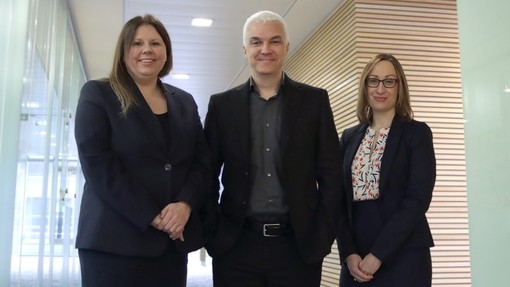Misconceptions about children on separation

Details
Children come in all shapes and sizes and they all have different levels of acceptance and coping mechanisms. It is therefore very difficult to predict how any particular child will react to news that their parents are about to/or have separated. With this in mind it is essential that when dealing with this delicate issue (and all connected decisions made about children) the best interests and welfare of children should be carefully considered and planned.
The following are some statements which are commonly made by parents who have separated:
Children are not affected by their parents’ separation
In our experience, this is largely untrue. The majority of children are affected in some way and this is particularly so where children have been exposed to parental conflict. Children love both parents and look to their parents to make decisions for them. It is therefore essential, on separation, for parents to put aside their differences for the sake of their children. This enables parents to effectively co-parent and jointly make important decisions in respect of all areas of their children’s lives whilst ensuring their children are protected from emotional harm.
Child maintenance and arrangements for child contact go hand-in-hand
Parents often believe that if they are paying child maintenance this means that they should automatically be seeing their children. This is not the case. Payment of child maintenance is a statutory liability. Having suitable arrangements in place to spend time with your children is a completely different and unrelated matter. Sadly, if agreement with regards to child arrangements cannot be reached, an application to court may be necessary regardless of child maintenance being paid.
Children always remain with the mother
This is not strictly true. Historically we have acted for both mothers and fathers in cases with very different circumstances. We have seen children live mainly with their mother, mainly with their father or indeed live with both parents on a shared care basis. On separation parents should try to come to an agreement about the care of their children to include where they will live/how much time they will spend with each parent. If agreement cannot be reached the assistance of the court may be required and so a court application for a Child Arrangements Order made.
Agreements reached directly between parents are legally binding
This is not true. Agreements reached between parents are simply that: an agreement. As such they are not legally binding. Only a Child Arrangements Order made by the court in formal proceedings made under the Children Act 1989, which sets out the arrangements for children, whether agreed or imposed by the court, are legally binding.
There are set precedents for child arrangements which the court must adhere to
This is untrue. When dealing with a children application, the court’s paramount consideration is the welfare of the individual child. The court will consider the welfare checklist (set out in the Children Act 1989) whilst taking account of any other relevant circumstances. Each case is different and this coupled with the wide discretion of the court means that a ‘one size fits all’ approach would therefore be unsuitable.
The court will follow what the children want
In some cases the court will decide that a report from CAFCASS is needed. CAFCASS stands for ‘Children and Family Court Advisory and Support Service’. CAFCASS are independent of the court and ensure that children’s voices are heard and that any decisions made are in the best interests of children. When preparing a report, CAFCASS will consider the ascertainable wishes and feelings of the children concerned and this will be considered in the light of their age and understanding. Therefore, it is not a given that whatever the children say is what will happen. CAFCASS will carefully consider the children’s wishes and feelings and then consider the weight, if any, to be given to such wishes and feelings taking account of, amongst other issues, the children’s age and understanding.
Involving children in decision making is helpful
Whilst parents may feel that it is important to involve children in decisions made about them, this is more often than not, not the best approach. Children are not adults and therefore should not be tasked with engaging in the decision making process. Children, depending on their age and understanding, are not usually properly equipped to fully consider and then make decisions. Children rely on the adults in their lives to make decisions for them. Children should be left to be children.
Grandparents are not important
Grandparents often play a large part in the lives of their grandchildren. Sadly, when parents separate, the important role that grandparents have in their grandchildren’s lives is often forgotten. Children can struggle to deal with their parent’s separation and the upheaval this may bring. Therefore it is essential that other aspects of children’s lives remain stable. Grandparents can provide a great source of comfort and security to their grandchildren during times of uncertainty.
All fathers have parental responsibility
This is a very common misconception. Fathers can obtain parental responsibility in the following ways:
- by being married to the mother at the time the child is born
- by being named on the child’s birth certificate after 1 December 2003
- by entering into a Parental Responsibility Agreement with the mother, and
- by order of the court.
So, as you can see, some of the most common pieces of information people receive may not actually be correct and as such when dealing with children issues arising out of separation it is essential that legal advice is sought at an early stage.






